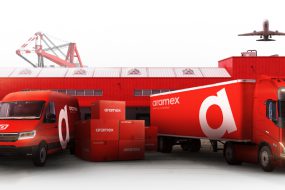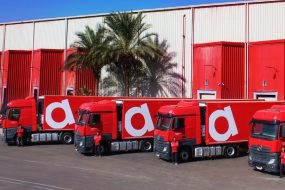In the intricate world of e-commerce,retail logisticshas become increasingly pivotal. As online marketplaces grow, e-commerce businesses must understand logistics and supply chain management. This knowledge is essential for success in a competitive market.
Retail logistics is managing how goods move from the source to the customer. E-commerce includes several processes: transportation, warehousing, inventory management, order fulfilment, and delivery. This article delves into the critical aspects ofretail logistics and distribution,online shopping logistics, and the overarching framework ofretail logistics and supply chain management.
Related article:Boosting online shopping logistics: Strategies for fast and reliable delivery
Retail logistics and distribution
Retail logistics is the backbone of e-commerce. It ensures that products are available to consumers in a timely and cost-effective manner. The distribution aspect involves strategically placing warehouses, efficient transportation networks, and integrating technology to optimise delivery routes.
Strategic warehouse placement
The location of warehouses plays a significant role in reducing delivery times and costs. Businesses can ensure faster delivery and reduce transportation expenses by strategically placing warehouses closer to major urban centres. This approach enhances customer satisfaction and contributes to sustainability by minimising carbon footprints.
Efficient transportation networks
Transportation is a critical component of retail logistics. Multimodal transportation—leveraging a combination of road, rail, air, and sea transport—can significantly enhance the efficiency and flexibility of logistics operations. This multimodal approach allows businesses to adapt to changing demands and optimise their supply chain networks.
Related article: An inside look at key strategies driving retail logistics efficiency
Online shopping logistics
The surge in online shopping has revolutionised the logistics landscape. With consumers expecting swift and reliable deliveries, e-commerce businesses must adapt their logistics strategies to meet these demands.
The last mile challenge
The “last mile” of delivery, the final step of the journey from distribution centre to consumer, presents a significant challenge inonline shopping logistics. It is often the most expensive and time-consuming part of the delivery process. Innovative solutions such as drone deliveries and autonomous vehicles are being explored to address this challenge.
Technology integration
The integration of technology in logistics operations is essential for optimising efficiency. Advanced data analytics, artificial intelligence, and Internet of Things (IoT) technologies enable real-time tracking of shipments, predictive analytics for demand forecasting, and enhanced inventory management. These technologies improve operational efficiency and provide valuable insights for strategic decision-making.
Retail logistics and supply chain management
Strategic planning and execution converge at the intersection of retail logistics and supply chain management. Effective supply chain management involves coordinating all aspects of logistics to ensure a seamless flow of goods and information.
Related article: E-commerce fulfilment and delivery services: The ultimate guide to efficiency
Circular economy in logistics
The circular economy concept is gaining traction in logistics and supply chain management. It emphasises the importance of sustainability by promoting the reuse and recycling of products and materials. By adopting circular economy principles, e-commerce businesses can reduce waste, lower costs, and enhance their brand reputation.


Adapting to urbanisation and e-commerce growth
The rapid urbanisation and exponential growth of e-commerce present both challenges and opportunities for retail logistics. The demand for efficient logistics solutions intensifies as urban areas become more densely populated.
Urban logistics solutions
Urban logistics solutions such as micro-fulfilment centres, urban consolidation centres, and innovative city initiatives are emerging as practical strategies to address the challenges posed by urbanisation. These solutions aim to optimise the use of urban space, reduce congestion, and enhance delivery efficiency.
Leveraging data for strategic insights
The proliferation of data generated by e-commerce transactions provides a wealth of information that can be harnessed for strategic insights. By leveraging big data analytics, businesses can better understand consumer behaviour, optimise inventory levels, and enhance demand forecasting.
Key takeaway
Improving e-commerce through retail logistics requires a careful distribution, technology, and supply chain management plan. By adopting new solutions and using modern technologies, e-commerce businesses can handle the logistics challenges and take advantage of the growth in urbanisation and e-commerce. E-commerce businesses can ensure their long-term success in the fast-changing online market by focusing on smart logistics planning and using the latest technologies.
Ready to optimise your e-commerce logistics?
Explore how Aramex’se-commerce and SME solutionscan help you streamline fulfilment, enhance delivery speed, and confidently scale your business.




